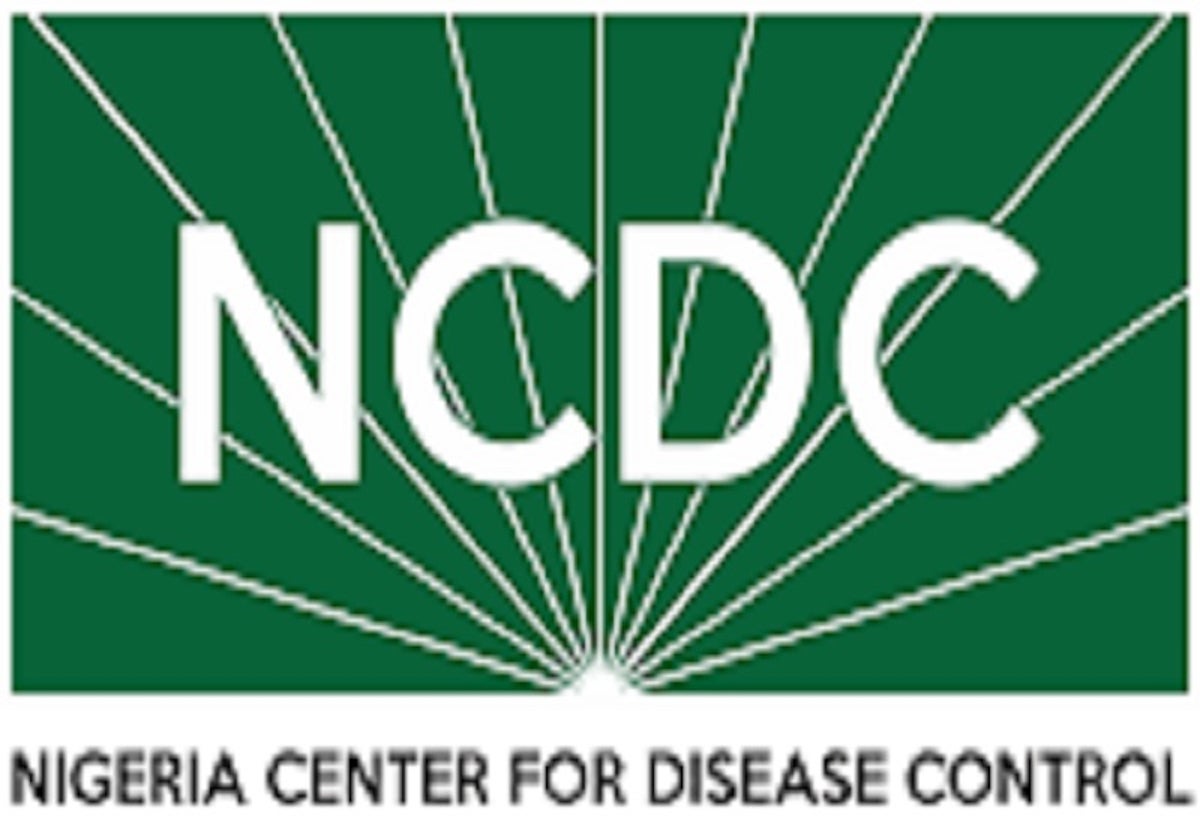Ever since 2017 when the World Health Organisation, WHO, first released a report that 18 Nigerians die hourly from Tuberculosis (TB), there have been efforts to stem the tide.
While some Nigerians believe it is under-reported and that the actual figure could be more than that, others are of the opinion that the figure was manufactured with the sole aim of attracting funds from the international donor agencies.
On its part, the Federal Government of Nigeria, on its part, has taken some measures to curtail the menace but not much has been achieved.
A recent report by the National Tuberculosis, Buruli Ulcer, and Leprosy Control Programme (NTBLCP) still maintained that more than 18 Nigerians die hourly from TB.
Deputy Director, NTBLCP in the Federal Ministry of Health, Mrs. Itohowo Uko, disclosed this recently in Lagos at an integrated media parley organised by Breakthrough Action Nigeria, in collaboration with the Health Writers Association of Nigeria (HEWAN).
Uko, a laboratory scientist, described tuberculosis as an airborne infectious disease caused by a germ, Mycobacterium Tuberculosis, which affects the lungs mainly, but may affect any part of the body.
“According to the World Health Organisation 2017 global report, TB is one of the top 10 causes of death worldwide, and Nigeria is classified among the 14 countries with high burden of TB.
“It is estimated that two out of every 1000 Nigerians will have TB. A total of 104,940 TB patients, representing about 20 percent of existing patients, were notified to the authorities in 2017. This means that there is a huge number of TB patients in communities that are not notified.
“No fewer than 18 Nigerians die hourly of TB, and one case of untreated TB can infect between 10 and 115 persons per year.
“Nigeria has the sixth largest burden of TB patients globally, and first in Africa. Out of the 104, 904 patients notified in 2017, 63 percent were aged between 15 and 44, the working age group being the most affected,” she said.
Uko said the statistics were scary and called on all stakeholders to show concern to ensure a Nigeria-free TB, reduced burden, as well as reach zero TB death.
On the dynamics of TB, she said TB is spread through the air when the person with TB of the lungs coughs, sneezes, sings or talks.
According to her, TB is curable and the patient is not termed as infectious after a few weeks of treatment.
“Persistent cough of two weeks or more duration may be due to TB and needs to be further investigated.
“Other signs of TB of the lungs include loss of weight when you are not trying to lose weight, drenching night sweats when others close by are not sweating like that and loss of appetite,” she said.
Earlier in March 2023, ahead of World Tuberculosis Day, a senior Programme Officer with KNCV Nigeria, Dr. Cynthia Onwuteaka, has described TB as the world’s second deadliest disease after COVID-19. She noted that 500,000 persons suffer from the disease, yearly.
She said: “The prevalence rate for TB is 219 for every 100,000 persons. If you check that with the population of Nigeria of about 200 million people, we should be looking at the range of 500,000 casualty figures per annum.”
She said the significance of the 2023 World Tuberculosis Day with the theme, “Yes, We Can”, could not be over-emphasised as it would afford stakeholders the opportunity to create awareness on how more people could access the much-needed care.
Recall that March 24 of every year is dedicated by the United Nations to raise public awareness about the devastating health, social and economic consequences of Tuberculosis, as well as to step up efforts to end the global epidemic.
According to the World Health Organisation, tuberculosis is one of the top 10 causes of death globally, with about 4,500 lives lost per day.
It is also identified as the major leading cause of death of HIV patients.
But, the WHO said the disease is preventable and curable, while it called for early diagnosis and treatment to prevent spreading the disease to others.
According to the global TB reports in 2017, there are seven countries that accounted for 64 percent of the burden and 30 countries have been listed to have the high burden of the disease.
Nigeria has been included in the list by securing the seventh position.
Other countries which preceded Nigeria are India, Indonesia, China, Philippines, Pakistan, and South Africa. Thus, this made Nigeria the second country in Africa with the highest burden of tuberculosis in 2017. Today, the story has changed as Nigeria now tops the least of the country with the highest TB burden in Africa.
The Nigerian Tuberculosis agency has outlined some of the major challenges for tackling tuberculosis in the country to include under-reporting of the cases, attributed partly to poor knowledge about the disease, and low coverage of the treatment.
In 2017, Nigeria recorded 403,000 incidences of TB, with 157,000 deaths.
But, the proportion declined steadily from that point up to 2021 when 467,000 cases and 125,000 deaths were reported. This gave a death-to-infection rate of 26.77 percent in 2021.
However, more disturbing is the fact that since 2017 when the WHO first reported that 18 Nigerians die every hour from TB, the figure has remained at that even up to this year 2024, a space of seven years.
Apart from Mrs. Uko, who maintained that the figure has not changed as of late last year, the Lagos State Governor, Babajide Sanwo-Olu’s wife, Ibijoke Sanwo-Olu, has taken the campaign against the scourge to radio and other platforms.
She has consistently maintained that 18 Nigerians die every hour from TB and called on those who have had to cough for two weeks and above to visit any public health facilities in the state for a free TB test and treatment if confirmed positive.
She is calling on all Nigerians to join hands, fight the scourge and ensure that Nigeria becomes TB-free as soon as possible.
Speaking to DAILY POST on the figure, the medical Director of St Bridget Memorial Hospital, Obollo Afor, Udenu Local Government of Enugu State, Dr. Ifeanyi Ohabuenyi, said he does not believe the authenticity of the report.
He noted that the figure was generated just to get funds from the international donor agencies, which, according to him, would stop releasing funds once it is discovered that the prevalence rate is going down.
He argued that if 18 Nigerians die every hour as the report stated, then it means that almost about 400 Nigerians die every day as a result of TB.
“If you multiply 18 by 24hrs, it means that almost 400 Nigerians die every day.
“How many people have died in your neighbourhood as a result of TB that you know? So, the truth is that if they don’t generate those data, the funds from the international donor agencies will not come.
“TB is almost going into extinction; it is no longer prevalent. What is even resurfacing is HIV but it is also being tackled. So, cases of TB are very insignificant but if you say that to the international donor agencies, they will stop the funds from coming again. So, they keep on generating data to support the funding,” he argued.
However, he noted that TB is a chronic respiratory tract condition caused by mycobacterium tuberculosis.
Narrating how people get infected, he said: “It is a droplet infection, which means that it is through the air. When someone that has TB coughs, the person releases the bacillus to the air and if somebody inhales it, the first thing it does is to go down and settle in the person’s respiratory tract.
“The body has a defence mechanism, which will check the initial Tb that entered the body.
“After a series of defensive initiation, that particular bacillus will form what is called a complex with the defence mechanism that came to fight it and they wall it off, so it becomes non-effective, but stays in the body for years.
“So, somebody may even die without having it again, but in certain conditions of the body that threatens the new status of the individual, that inactive or chain tuberculosis bacillus will now gather power and reactivate, causing the destruction of the lungs.
“Then, it will start spreading to other parts of the body causing a typical cough with the production of bloody sputum, and loss of weight.
“It will also reduce the immune system that even caused it to reactivate. The person will start emaciating and the bacillus will keep on destroying the lungs causing brainlessness. The patient will also experience night sweat.”
He also advised that anybody, who has coughed for more than two weeks, should visit a hospital to check for TB.
“This is because even the vaccine given at birth, the BCG, though a life-activated vaccine, but in certain conditions, it can also become active and start causing infection, especially at certain immune-compromised states.
“These are called second TB in the sense that the initial infection was controlled by the body and it became harmless. Then, when other conditions that result in reduced immunity of the body now set in, it will now provide a very conducive environment for the inactive or harmless TB to start proliferating and now become harmful.
“But, for some people, the initial infection may start progressing and the body may not be able to contain it. They will spread to the whole body and start being destructive,” he said
He also identified some sources of TB infection to include poorly sterilised dairy products, poor personal hygiene, unclean environment, among others.
Diagnosis
How does one actually confirm that he/she has TB?
He said: “Clinical signs and symptoms include chronic coughs, weight loss, night sweat, and low grade fever.
“The person has to go for chest x-ray to see the capitation. The person can also go for the mantoux test, a skin sensitivity test given like an injection into the skin, and if the circle of swelling is more than a particular millimetre, then it is suggestive that the person has tuberculosis.
“Another one is acid fat bacillus test, where the sputum or gastric fluids are used for the test. You make a slide in the lab and view it under a microscope and if the stain is acid fat, it is a positive sign.
“Such sputum or gastric fluids have to be taken for three consecutive days. The person has to cough out today, tomorrow and next tomorrow and if they are all reactive, then that’s it. The latest one is called genexpert; a DNA modulated test,” he said.
Dr. Ohabuenyi noted that once it is confirmed that a person has TB, the person has to undergo treatment for at least six months with anti tuberculosis drugs.
“Two months of intensive therapy and the remaining four months of continuation with the therapy,” he added.
Prevention
The saying that prevention is better than cure aptly applies here, as Dr. Ohabuenyi listed some of the preventive measures to curtail the spread of TB where it already exists.
“Oral hygiene is number one. If someone knows how to cough, it helps. One is expected to fold his or her hand and cough in-between the elbow; that way, the droplets will fall on ground, and TB will not spread.
“Environmental sanitation- good housing because the spread occurs more in overcrowded environments. Houses should be built with proper ventilation and proper spacing.
“Prompt diagnosis and treatment are also very important and all these should come under health education, where the importance of personal hygiene and cough etiquette among others are seriously emphasised,” he stated.
However, a medical laboratory scientist and microbiologist, Dr. Kenneth Ugwu, the figure of 18 deaths per hour as a result of TB in Nigeria is under-reported.
He maintained that those who gave out the report based their findings on those who visited public medical facilities, as they never considered those in hinterlands who are not used to visiting hospitals.
He said: “Whatever figure they are giving you is actually under-reported, although sometimes, they use modelling, but how many smokers do they have records of their smoking activities and their self-help effort?
“So, the report is based on those who present themselves to the public health facilities where data are collected.
“Those who die in the villages, do they know about them or do they even factor them into their data collection? These are some of the challenges with such reports,” he told DAILY POST.
Also speaking to our correspondent, an associate professor of Medical Imaging, Nnamdi University, Awka, Sir Ugwu Anthony, equally believes that so many cases of TB are not reported.
He, however, suggested that the only way to tackle the menace of TB is for the government to engage in a massive public awareness campaign on the need for personal hygiene and the need to visit hospitals for proper check-ups as soon as somebody coughs constantly for two weeks.
He also wants the government to make testing and treatment free for TB patients, even as he advised that such awareness campaigns should not only be restricted to townships and city centres, but also to rural communities where a handful of potential victims live.
Stakeholders worry as TB scourge fails to abate in Nigeria



